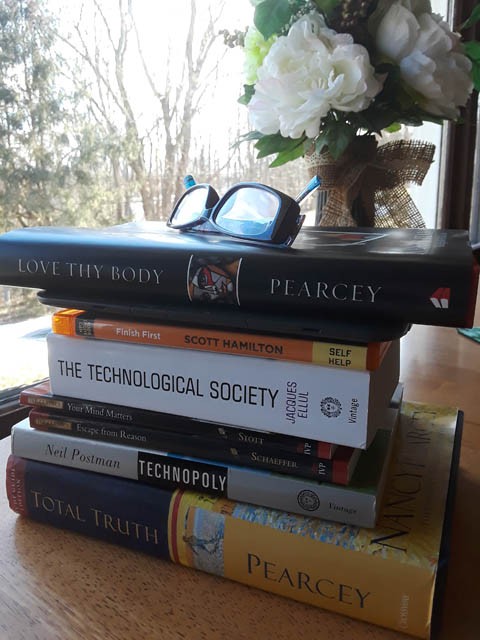Narnia and Other Matters
My Netflix this week is the BBC version of Dickens’s Bleak House. The juxtaposition of that with my reading these days–Falling Man (my first DeLillo novel), and The Lion, the Witch and the Wardrobe, which I’m reading to my 6-year-old, has me thinking about community. I wanted to try and get some of the thoughts ordered somehow.
Dickens is the master of the multiple-plotlines-huge-cast-of-characters-make-’em-laugh-make-’em-weep-make-’em-wait story. The sheer multitude of characters in his novels is amazing, and when all of them end up somehow connected to each other in the ultimate resolution (a mere 67 chapters and 909 pages later), you can picture the charts and diagrams Dickens must have carried around between his ears to connect all the dots as he was writing. You leave the novel with a sense that London is a densely populated, but tightly connected, little spot of earth. No matter how alone you may feel as one of his characters, fear not–you’ll end up distantly related to someone important, or restored to relationship with someone you thought was dead, or suddenly stepping from one state of being into a drastically different one because of someone else. We’re all connected in Dickens’s world.
What a contrast to Falling Man, which documents how a very small nucleus of humanity copes in the days after 9/11. In a population center many times bigger than London, and boasting many more and much stronger communication networks that should (theoretically) draw people together, the pervasive mood of the novel is isolation and loneliness. For all that’s been said about New Yorkers pulling together in a crisis, the characters’ state of mind is unrelentingly solitary. Even the main characters, a man who was in one of the towers when it was hit and his ex-wife, have so far come back together merely to co-habitate.
And then there’s LWW, which explores a tiny human community (the 4 Pevensie children) developing a relationship with a transcendent one (the inhabitants of Narnia). This is the set of circumstances that most closely resembles my own. But so far, I haven’t drawn any conclusions as to where it belongs in the continuum starting with Dickens and plummeting to DeLillo. I can observe, though, that these children are plunged into a world that’s completely unfamiliar to them, and they have to make their way in it. They have to submit to its laws or there’ll be trouble (i.e. Edmund). So its basic framework is a stripped-down version of the human situation we all are born into.
It gets me thinking about types of community I’ve observed, and reminds me of my basic operative thesis that when “community” becomes an abstract idea rather than a necessity, it loses all its potency and its transcendent purpose. My brother and his family changed churches about 2 years ago, from one that talked and dreamed about this thing called “community,” to one in which they’re simply doing it. It’s a small, rural Methodist church, but as my brother puts it, “They’re taking care of each other, their neighbors, and people across the world.” In his words, they are “100% unanimous about who they are and why they’re there.” Surely a big part of this is that they quite literally share common ground. Everyone in the church lives in the same hamlet in Pennsylvania.
Wendell Berry’s novels, all based in the same pre-industrialized farming community in Kentucky, develop a similar idea, minus any church presence. People help each other because it’s a necessity of life–harvesting tobacco, building barns, sharing produce, buying locally. In leisure moments they congregate on front porches and in barber shops and talk endlessly about all these same things that they do together, making plans and predictions and telling stories about the past. Community isn’t a luxury, but a necessity.
This is all quite a contrast to the abstract meaning “community” warps towards now. There’s an illusion that we don’t have to submit to many limits at all to negotiate our way through today’s world–thanks to credit cards, cyberspace, labor saving devices, mass transportation, and an overwhelming food supply. That doesn’t build very strong relational muscles, which depend on being able to submit to others’ personhood. Maybe this is part of why Jesus was sent in an era before we became so sophisticated and so confused in our ability to transmit and understand personality.
Hmm. This isn’t a very encouraging place to stop. But I’m happy to say that the practical necessity of my life requires me to submit to it at this point–my daughter is up from her nap and needs me. What a relief! I was beginning to feel trapped in a DeLillo novel.


